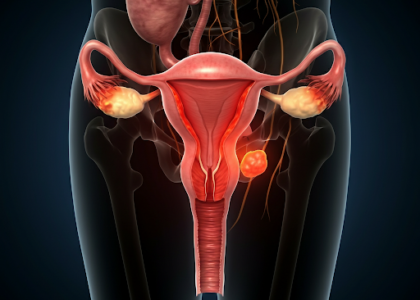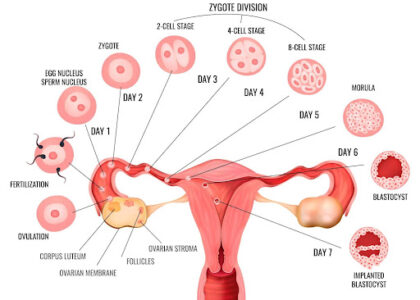Infertility is often seen as a permanent issue, but in many cases, it can be temporary. Temporary infertility means that, although conception may be challenging at a given time, it is possible to restore fertility by addressing the underlying causes. Common factors leading to temporary infertility include hormonal imbalances, lifestyle influences, certain infections, and medications. With the right interventions, fertility can often be reestablished.
Hormonal Imbalances and Their Impact on Fertility
Hormonal imbalances are a frequent cause of temporary infertility. Conditions like polycystic ovary syndrome (PCOS) and thyroid disorders can disrupt the hormonal cycles that regulate ovulation, affecting a woman’s ability to conceive. PCOS, for example, can lead to irregular menstrual cycles and the absence of ovulation due to excess androgens and insulin resistance. Similarly, an underactive or overactive thyroid can throw off reproductive hormones, impacting ovulation and menstrual regularity. With proper medical treatment, such as hormone therapy, medication, or lifestyle modifications, these hormonal imbalances can be managed, and fertility often improves as a result.
Lifestyle Factors Contributing to Temporary Infertility
Lifestyle choices are a significant but often underestimated contributor to infertility. High stress levels, poor diet, lack of exercise, excessive alcohol consumption, and smoking can all adversely affect reproductive health. For instance, stress triggers the release of cortisol, a hormone that can interfere with reproductive hormones. In both men and women, stress can lead to hormonal imbalances that inhibit ovulation or reduce sperm quality. Similarly, an unhealthy diet lacking essential nutrients can hinder hormonal balance, impacting ovulation or sperm health. Smoking, alcohol, and even excessive caffeine are known to affect fertility by reducing sperm count and impairing egg health. Making healthier lifestyle choices—like managing stress, eating a balanced diet, quitting smoking, and limiting alcohol—can positively impact fertility and improve the likelihood of conception.
Infections and Illnesses Affecting Fertility
Certain infections or illnesses, particularly those involving the reproductive system, can also lead to temporary infertility. In women, infections like pelvic inflammatory disease (PID), often caused by untreated sexually transmitted infections (STIs), can lead to inflammation, scarring, or blockages in the fallopian tubes. This can temporarily interfere with the fertilization process. In men, infections such as orchitis (inflammation of the testes) or epididymitis (inflammation of the epididymis) can affect sperm production or quality. Many of these infections are treatable with antibiotics or other medications, and once the infection clears, fertility often improves, especially if the treatment is prompt.
Medications and Treatments as Temporary Barriers to Fertility
Certain medications, particularly those affecting hormone levels, may temporarily reduce fertility. Medications such as some antidepressants, chemotherapy drugs, and hormonal treatments can disrupt reproductive hormone production or temporarily stop ovulation or sperm production. For instance, chemotherapy can affect sperm production or egg health, but in many cases, fertility can return after treatment. Additionally, long-term use of contraceptive pills may temporarily delay the return of normal ovulation after stopping, although this is usually a short-term effect. In most cases, fertility is restored once these medications are discontinued or replaced.
Reversibility of Temporary Infertility
The promising aspect of temporary infertility is that it is often reversible. With the right diagnosis and treatment, many underlying causes can be managed or corrected, allowing natural fertility to return. Lifestyle modifications, such as reducing stress and adopting a nutritious diet, can significantly impact fertility. Likewise, medical interventions to address hormonal imbalances, infections, or medication side effects often restore reproductive health. For individuals struggling with conception, consulting a healthcare provider to identify and address these temporary factors can be highly beneficial.
Conclusion
While infertility can feel overwhelming, many cases are temporary, and fertility can be regained through appropriate treatment and lifestyle adjustments. Addressing underlying causes like hormonal imbalances, infections, or lifestyle factors often helps restore fertility, offering hope to those facing conception challenges.






Recent Comments